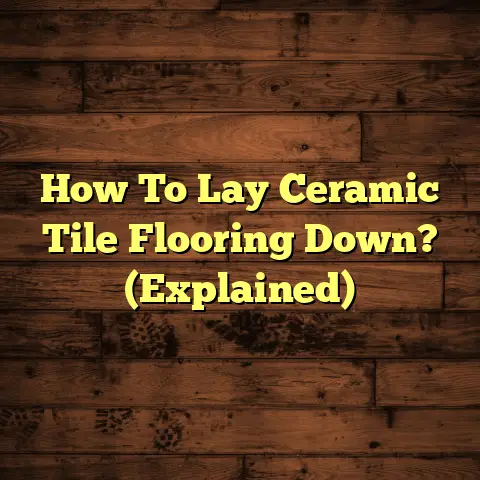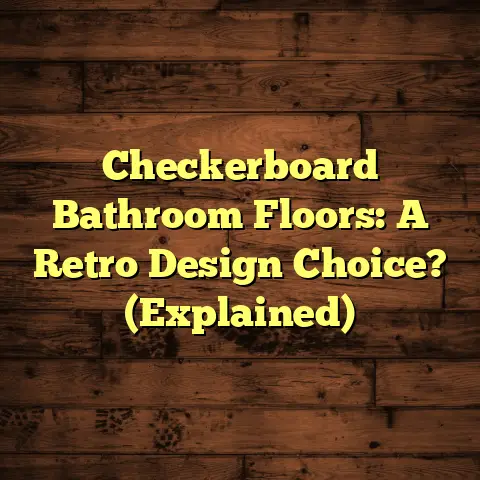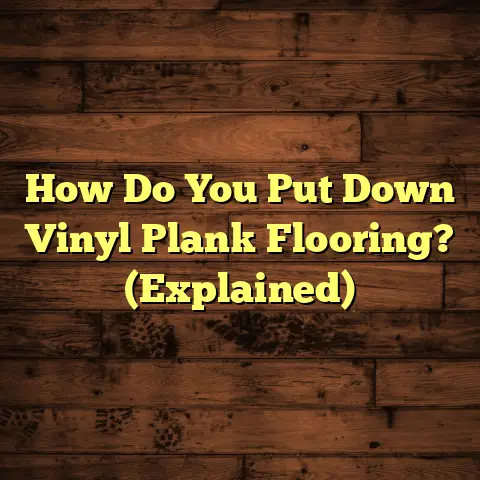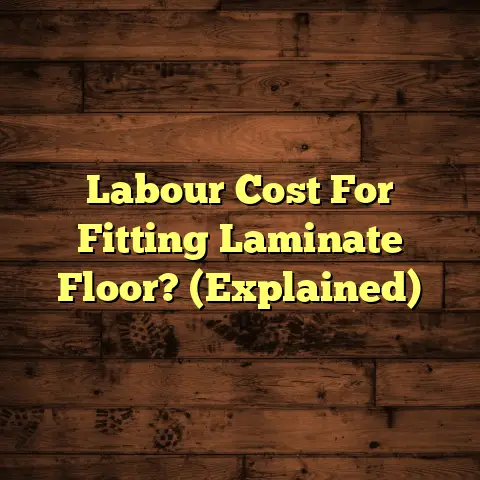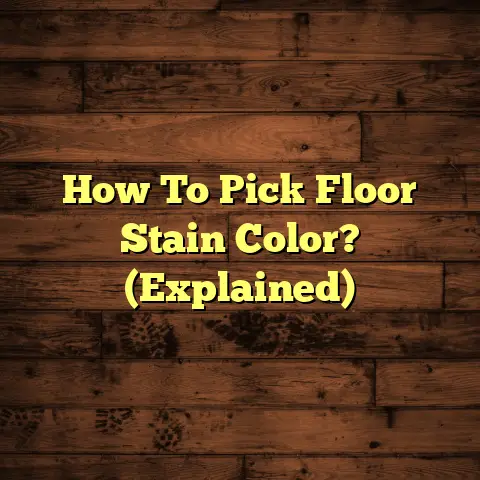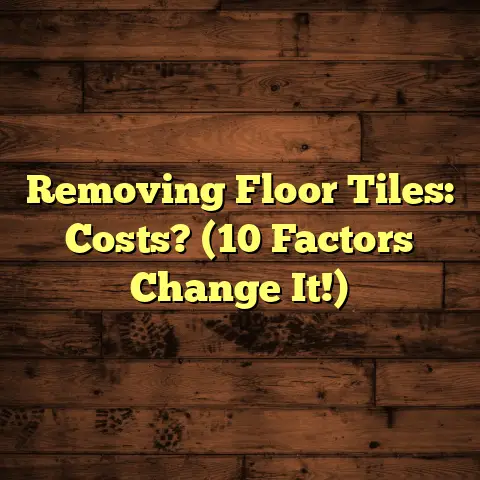Epoxy Flooring Cost Near Me (Explained)
Epoxy Flooring Cost Near Me (Explained)
Introduction to Epoxy Flooring
Epoxy flooring has gained popularity in both residential and commercial spaces due to its durability, aesthetic appeal, and low maintenance. However, one of the primary considerations for homeowners and business owners alike is the cost associated with epoxy flooring installation. This article provides a comprehensive breakdown of the factors influencing epoxy flooring costs, compares it to alternative flooring options, and offers guidance on making informed decisions regarding your flooring project.
Understanding the Major Cost Factors
1. Area Size
The size of the area where you plan to install epoxy flooring significantly impacts the overall cost. Larger spaces will naturally require more materials and labor, which increases the total expense.
- Cost per Square Foot: On average, epoxy flooring costs between $3 to $12 per square foot, depending on various factors.
2. Type of Epoxy
There are several types of epoxy flooring systems, each with its own price range:
- Standard Epoxy: This is the most basic option and typically costs around $3 to $7 per square foot.
- Flake Epoxy: Incorporating decorative chips, this type can range from $5 to $10 per square foot.
- Metallic Epoxy: Known for its unique finish, metallic epoxy can cost between $7 to $12 per square foot.
3. Labor Costs
Labor costs can vary widely based on your location and the complexity of the installation:
- Professional Installation: Hiring professionals typically adds $2 to $5 per square foot to your total cost.
- DIY Installation: While this can save money, it requires a certain skill level and access to specific tools.
4. Additional Considerations
Several additional factors can influence the overall cost of your epoxy flooring project:
- Floor Removal: If you need to remove existing flooring, expect to pay additional fees, typically ranging from $1 to $3 per square foot.
- Subfloor Preparation: Properly preparing the subfloor is crucial for a successful installation. Costs for this can vary from $0.50 to $3 per square foot.
- Material Grade: Higher-quality materials will naturally increase your costs but may offer better durability and aesthetics.
- Room Size/Layout: Irregular room shapes or layouts may require more complex installations, impacting labor costs.
Cost Breakdown by Project Size
Here’s a detailed cost breakdown for different project sizes:
| Project Size | Estimated Cost Range |
|---|---|
| Small Room (100 sq ft) | $300 – $1,200 |
| Medium Room (500 sq ft) | $1,500 – $6,000 |
| Large Room (1,000 sq ft) | $3,000 – $12,000 |
Comparing Epoxy Flooring with Alternative Options
When considering flooring options, it’s wise to compare costs with alternatives like laminate, vinyl, and carpet.
1. Laminate Flooring
- Cost: $1 to $5 per square foot.
- Durability: Less durable than epoxy; prone to scratching and moisture damage.
2. Vinyl Flooring
- Cost: $2 to $7 per square foot.
- Durability: Waterproof options available but may not offer the same aesthetic appeal as epoxy.
3. Carpet
- Cost: $1 to $4 per square foot.
- Durability: Comfortable but requires regular maintenance and is less durable than epoxy.
Signs That Epoxy Floors Need Replacement
Recognizing when your epoxy floors need replacement is essential for maintaining safety and aesthetics. Look for these signs:
- Cracking or Peeling: These issues indicate that the floor has reached the end of its life cycle.
- Dull Appearance: If regular cleaning doesn’t restore shine, it may be time for a replacement.
- Water Damage: Persistent water pooling can lead to structural issues.
To Refinish or Replace?
Deciding whether to refinish or replace your epoxy flooring depends on several factors:
When to Refinish
- Minor scratches or dullness can often be resolved through refinishing.
- Cost-effective if the base layer is still intact.
When to Replace
- Significant structural damage or extensive wear may necessitate a full replacement.
- Economically sound in cases of severe aesthetic decline.
Pros and Cons of Epoxy Flooring
Pros
- Durability: Resistant to stains, spills, and chemical damage.
- Aesthetics: Available in various styles and finishes.
- Low Maintenance: Easy to clean and maintain.
Cons
- Installation Complexity: Requires skill for proper application.
- Temperature Sensitivity: May not perform well in extreme temperature fluctuations.
Professional Installation vs. DIY
Professional Installation
- Cost: Higher upfront costs but ensures proper application.
- Time-Saving: Professionals can complete installations quickly and efficiently.
DIY Installation
- Cost Savings: Save on labor costs; however, consider tool rental and material waste.
- Skill Requirement: Requires knowledge of installation techniques and proper surface preparation.
Questions to Ask Hardwood Flooring Contractors
Before hiring a contractor for your epoxy flooring project, ask these questions:
- What is included in your estimate?
- How long will the installation take?
- Can you provide references or examples of past work?
- Do you offer a warranty on your work?
- What preparation is required before installation?
Care and Maintenance Tips for Epoxy Floors
To maximize the longevity of your epoxy flooring, follow these maintenance tips:
- Regular Cleaning: Sweep or vacuum regularly to prevent dirt accumulation.
- Mopping: Use a damp mop with a pH-neutral cleaner for best results.
- Avoid Harsh Chemicals: Steer clear of abrasive cleaners that can damage the finish.
- Use Mats and Rugs: Place mats in high-traffic areas to reduce wear.
Conclusion
Understanding the costs associated with epoxy flooring installation can help you make informed decisions for your home or business. By considering factors such as area size, type of epoxy, labor costs, and maintenance needs, you can budget effectively for your project. Whether you choose professional installation or decide to take on a DIY approach, being equipped with this knowledge will ensure a successful flooring outcome that meets your aesthetic and functional needs.
